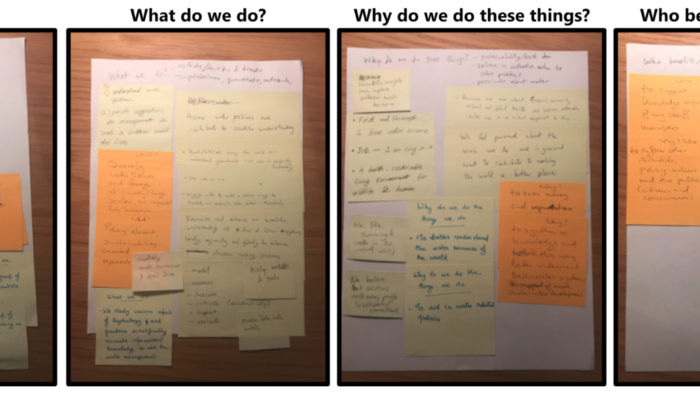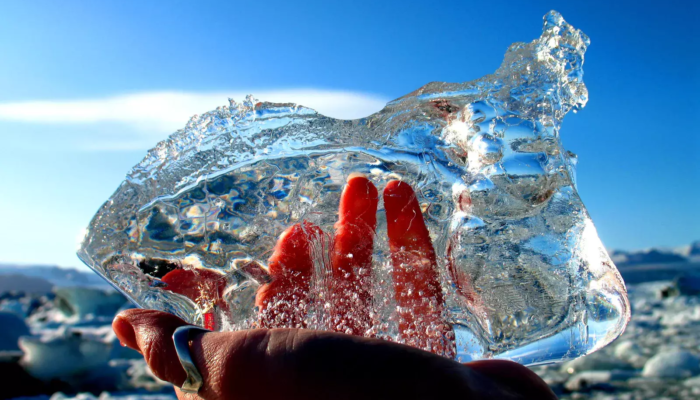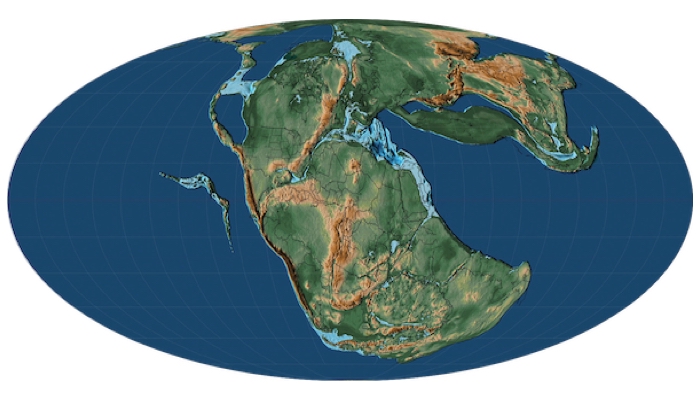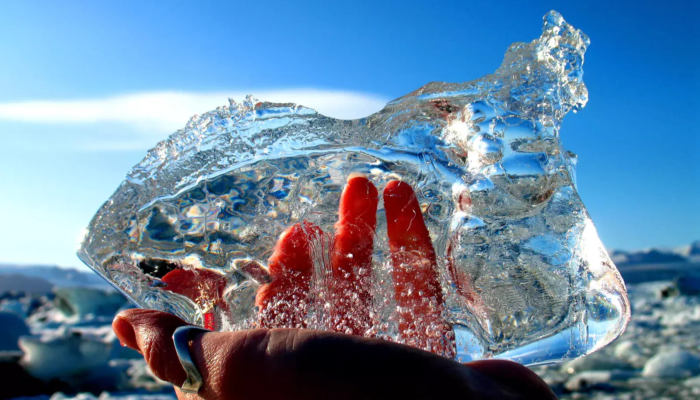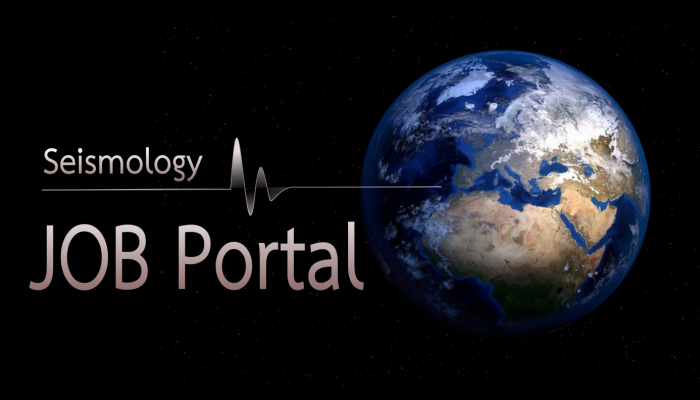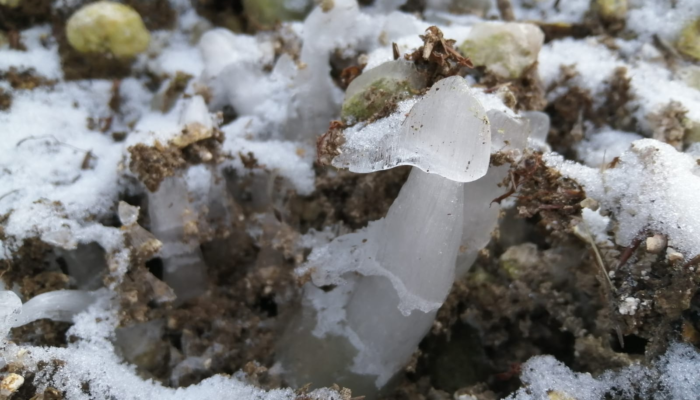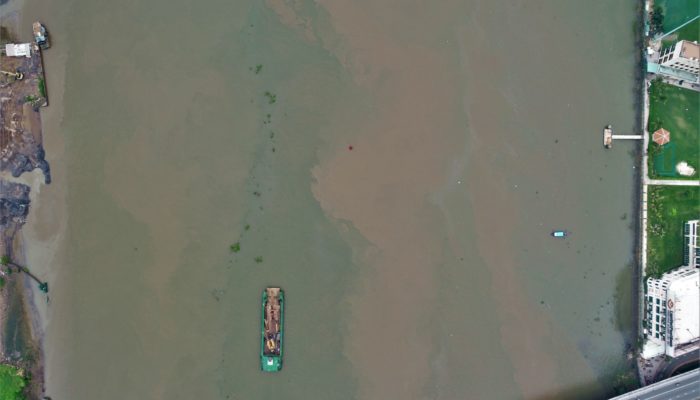Frank freely admits he did a PhD because he didn’t feel ready to join the corporate world. Ties strangle him and he’s only ever seen 7am from the wrong side. But as universities and funding agencies request more performance metrics and research valorisation plans, he reached out to the Sassy Scientist to ask: What can geodynamicists learn from the business world? Dear Frank, Low-hangin ...[Read More]
If you didn't find what you was looking for try searching again.
WaterUnderground
Writing a research vision statement in a pandemic
Tom Gleeson, University of Victoria with lots of input from the GSAS research collective We’ve all done weird, new things in the pandemic. We have tried Zoom parlour games and a few of us have done the pandemic tropes of giving bread baking or even giving a new fitness regime a try. Strangely, the very last thing that we did together in person as a research group before the first pandemic lockdown ...[Read More]
GeoLog
GeoPolicy: Atmospheric Sciences and Climate: Past, Present & Future Divisions welcome the US back into the Paris Climate Agreement
As of 19 February 2021, the US officially re-joined the Paris Climate Agreement, a landmark international accord to limit global warming by 2°C (and ideally to 1.5°C) compared to pre-industrial levels. The Paris Climate Agreement aims to bring the world together to avoid catastrophic warming that will impact us all and to build resilience to the consequences of climate change that we are already s ...[Read More]
Climate: Past, Present & Future
EGU’s Atmospheric Sciences and Climate: Past, Present & Future Divisions welcome the US back into the Paris Climate Agreement
As of 19 February 2021, the US officially re-joined the Paris Climate Agreement, a landmark international accord to limit global warming by 2°C (and ideally to 1.5°C) compared to pre-industrial levels. The Paris Climate Agreement aims to bring the world together to avoid catastrophic warming that will impact us all and to build resilience to the consequences of climate change that we are already s ...[Read More]
Geodynamics
Paleogeography – A window into past mantle dynamics
Paleogeography refers to the past distribution of landmasses and oceans and gives important insights into the state of previous tectonics. This is a useful cornerstone for many aspects of geodynamics and this week Boris Robert – previously postdoctoral fellow at the Centre for Earth Evolution and Dynamics Oslo (Norway) and currently visiting scientist at GFZ Potsdam (Germany) – tells us how we may ...[Read More]
Atmospheric Sciences
EGU’s Climate: Past, Present & Future and Atmospheric Sciences Divisions welcome the US back into the Paris Climate Agreement
As of 19 February 2021, the US officially re-joined the Paris Climate Agreement, a landmark international accord to limit global warming by 2°C (and ideally to 1.5°C) compared to pre-industrial levels. The Paris Climate Agreement aims to bring the world together to avoid catastrophic warming that will impact us all and to build resilience to the consequences of climate change that we are already s ...[Read More]
Seismology
Seismology Job Portal
On this page, we regularly update open positions in Seismology for early career scientists. Do you have a job on offer? Contact us at ecs-sm@egu.eu Please, note that other available research positions are displayed on the EGU Jobs Portal. Special Thanks to Eric Löberich for researching job postings for the ECS.
Geodynamics
First time… publishing a paper
I can’t speak for anyone else, but finally getting a paper through comes with the great satisfaction of not having to deal with the project anymore. There’s a sense of relief, hope, and maybe excitement that the time that is now freed up can be used on other, new projects. Anyway, I am currently still in this honeymoon period so please don’t ruin it by telling me it will end soon. After recently s ...[Read More]
Cryospheric Sciences
Image of the Week – The mystery of the ice mushrooms
Last week, the EGU Cryosphere Blog (“Cryoblog” for the regulars) team was contacted by a reader who stumbled upon very curious ice formations while taking a morning walk in rural Berkshire, England. This was right after a few nights with below-freezing temperatures and snowfall. He asked us whether we could explain to him what these ice mushrooms were and how they formed. Very curious and always k ...[Read More]
GeoLog
GeoTalk: Meet Tim van Emmerik, hydrologist and Geosciences Instrumentation and Data Systems Division Early Career Scientist representative.
Hi Tim, thanks for talking with us today, can you start by telling us a little about yourself and your research background? As experimental hydrologist I aim to provide reliable data to solve water-related societal challenges. For over a decade I have been working on developing new, better or cheaper measurement methods to quantify components of the water cycle. My first projects focused on estima ...[Read More]


